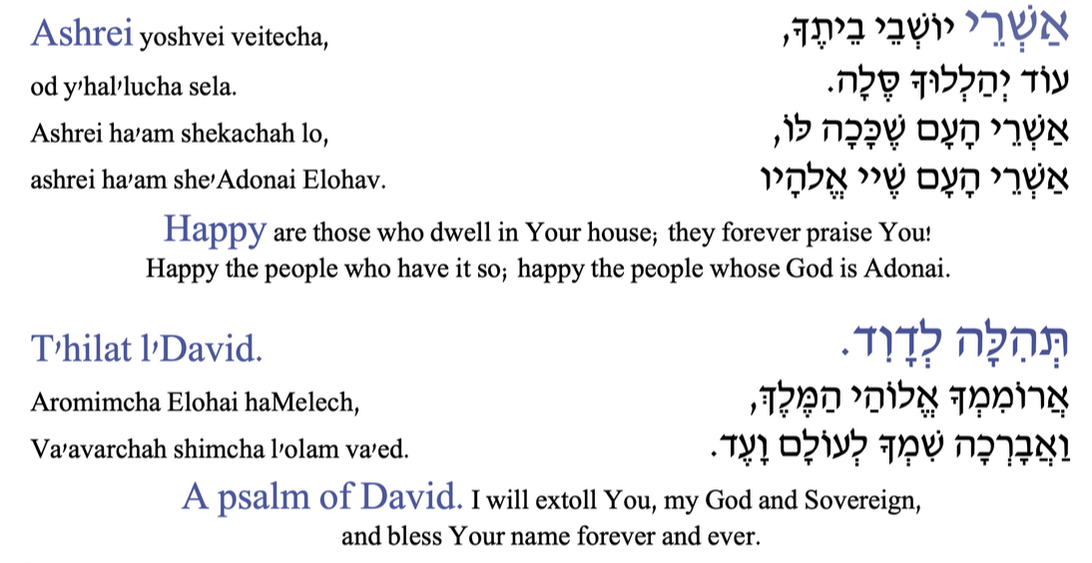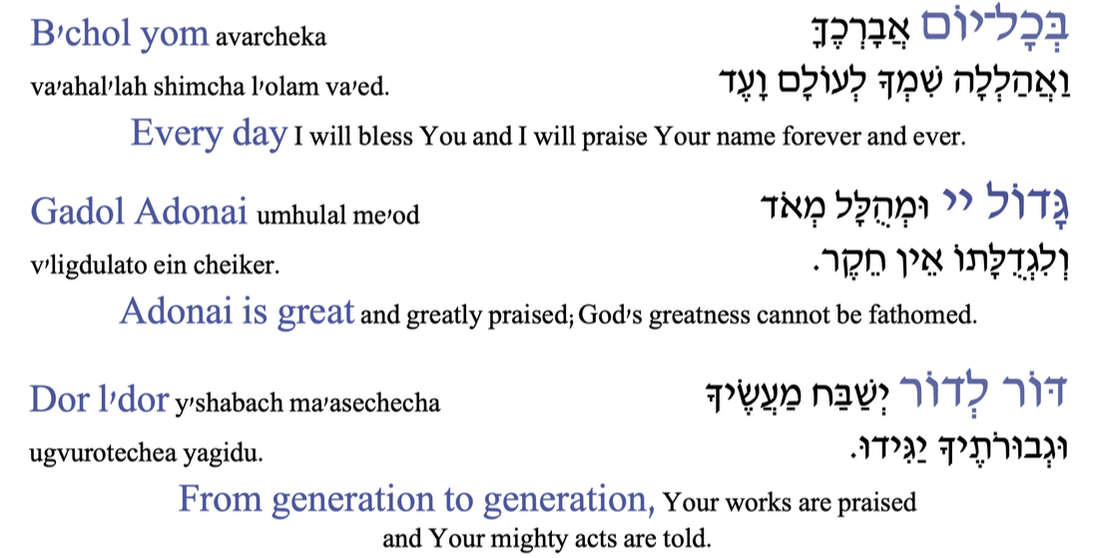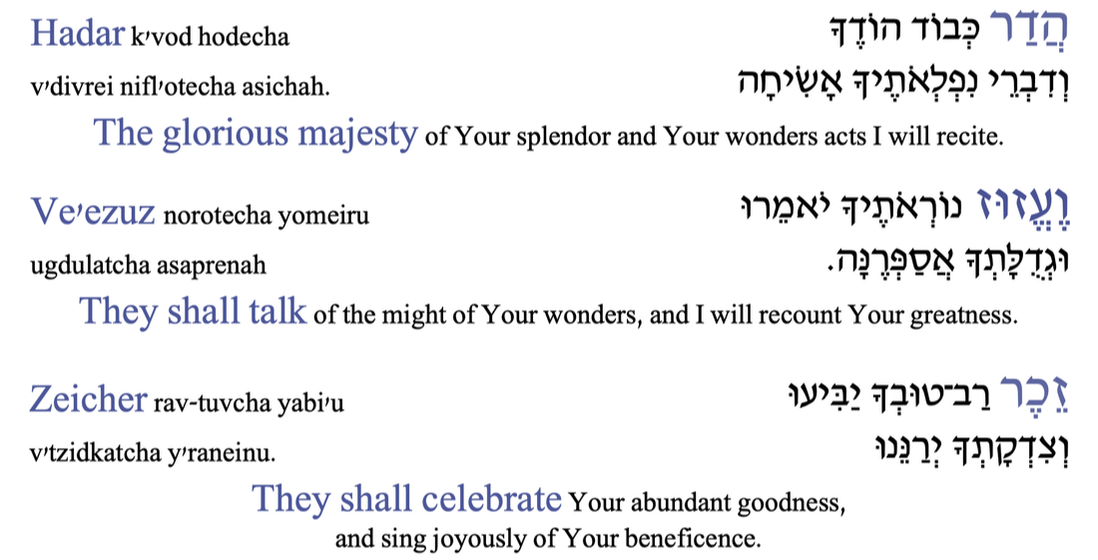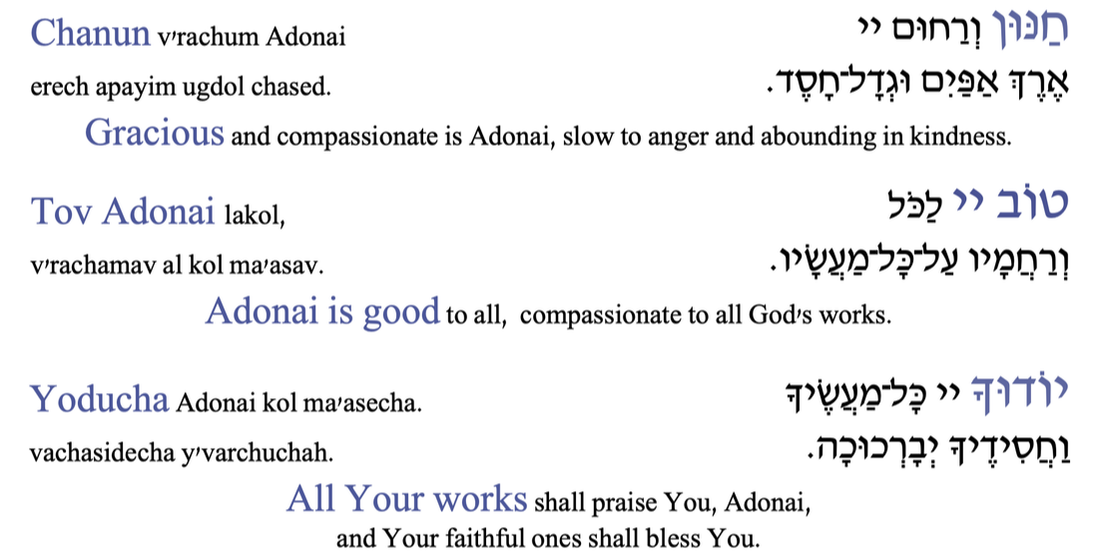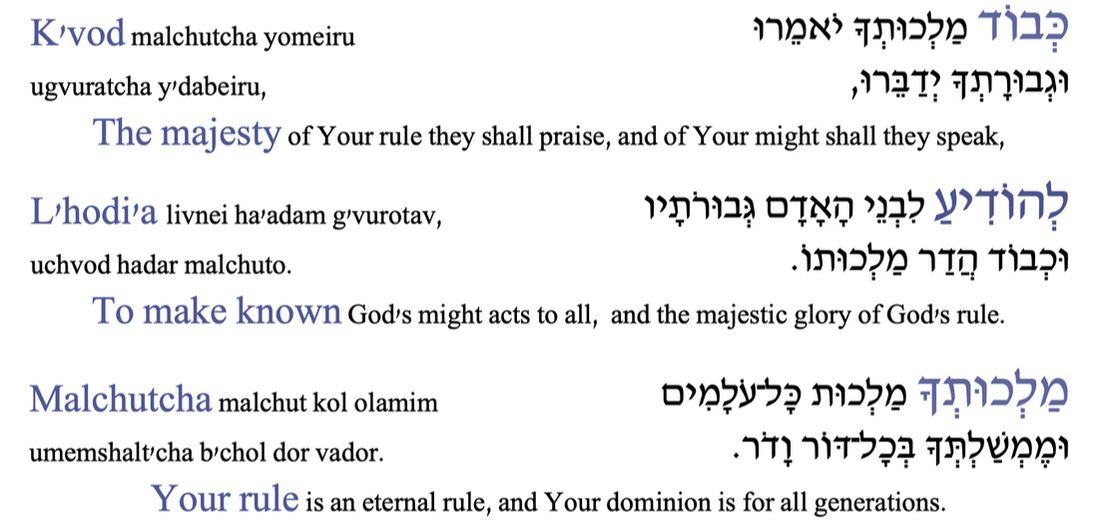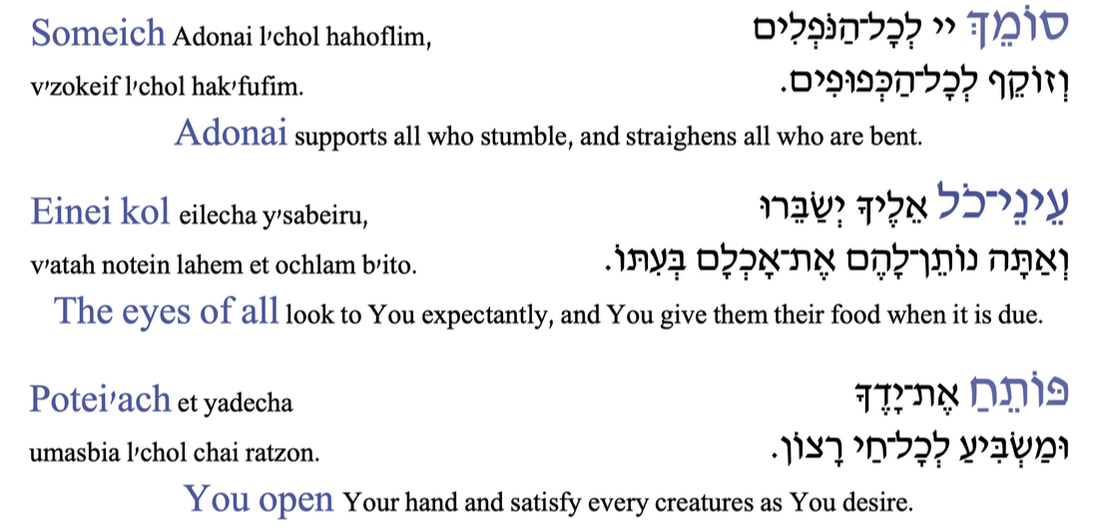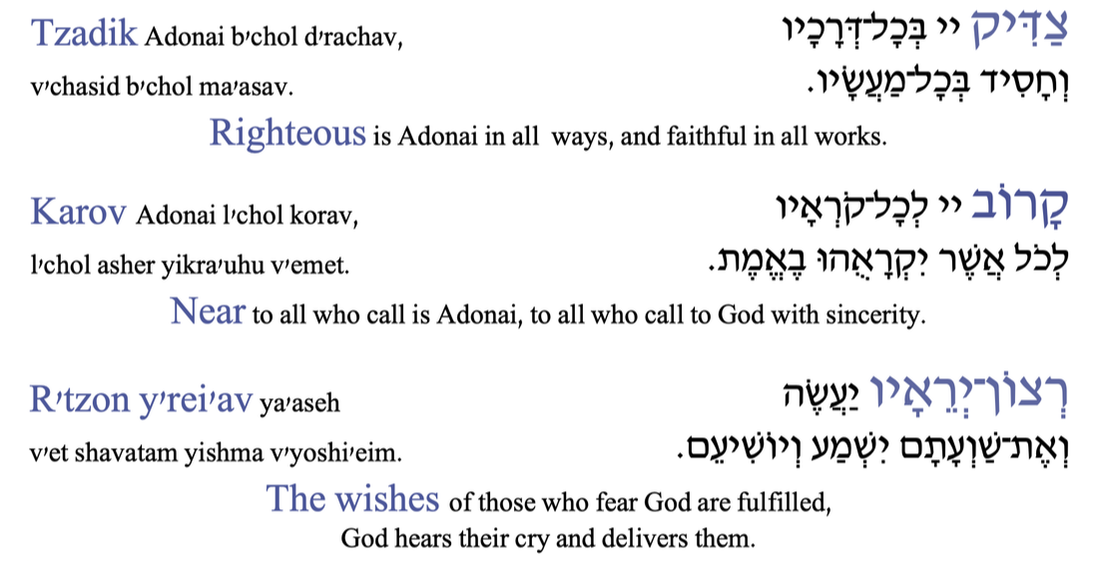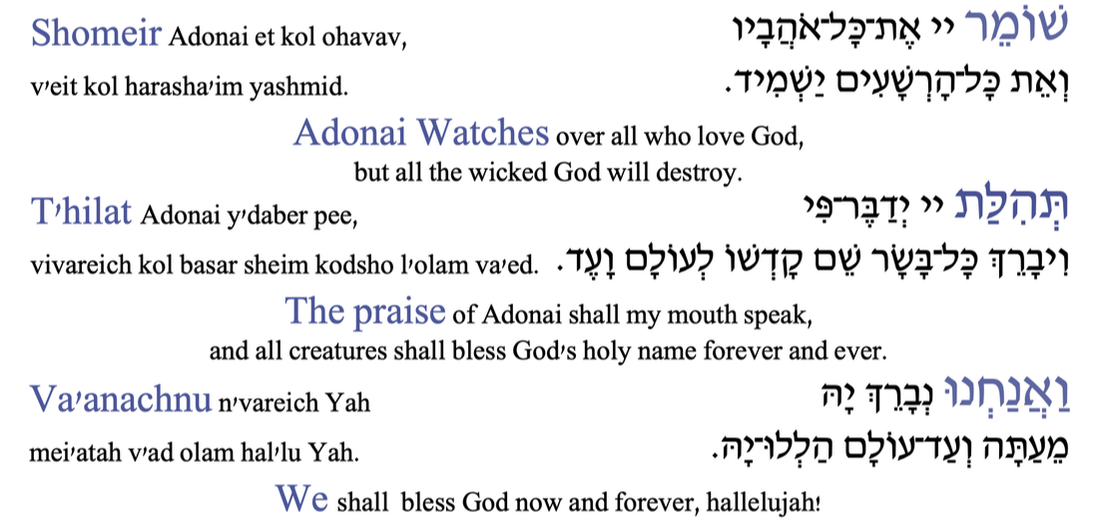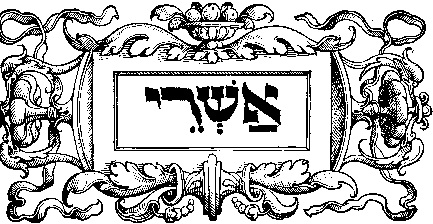Ashrei
|
| ||||
Mishkan T'filah, pages 303-306
Reciting Ashrei
Ashrei (literally, "Happy") is one of the most often repeated prayers in Jewish tradition. In traditional practice, a person recites Ashrei at least three times a day – twice in the morning service and once in the afternoon service. (In the prayerbook of the Reform movement, Ashrei is recited only once in the morning service, before the Barchu in the section called "P'sukei D'zimra.")
Ashrei is made up mostly of Psalm 145. It includes verses from other psalms at the beginning and the end. The words of Ashrei mostly praise God for making our lives joyful when we are close to God, for ruling the world with justice, and for providing for all our needs. Because the prayer is composed as an acrostic – with lines beginning with the letters of the Hebrew alphabet in order – it is easy for Hebrew speakers to memorize. (One letter is missing – there is no verse for the letter Nun.) The prayer may have been favored by the early rabbis because it was a joyful and popular way of singing God's praises.
There is a familiar call-and-response melody for chanting Ashrei that emphasizes joy and rhythm. Reciting Ashrei can be a meditative experience. The specific words of the prayer are not as important as the pleasure of joining with other voices in familiar song.
Ashrei is made up mostly of Psalm 145. It includes verses from other psalms at the beginning and the end. The words of Ashrei mostly praise God for making our lives joyful when we are close to God, for ruling the world with justice, and for providing for all our needs. Because the prayer is composed as an acrostic – with lines beginning with the letters of the Hebrew alphabet in order – it is easy for Hebrew speakers to memorize. (One letter is missing – there is no verse for the letter Nun.) The prayer may have been favored by the early rabbis because it was a joyful and popular way of singing God's praises.
There is a familiar call-and-response melody for chanting Ashrei that emphasizes joy and rhythm. Reciting Ashrei can be a meditative experience. The specific words of the prayer are not as important as the pleasure of joining with other voices in familiar song.

